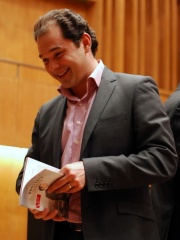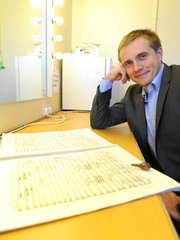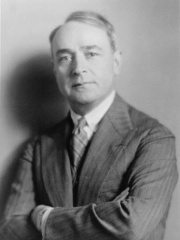
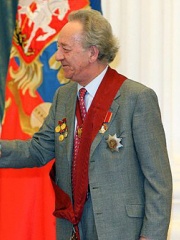
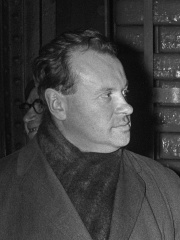
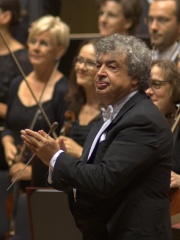
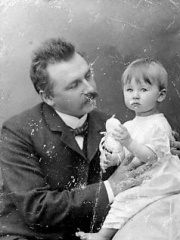
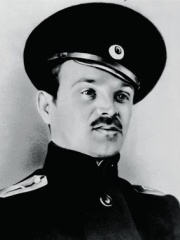
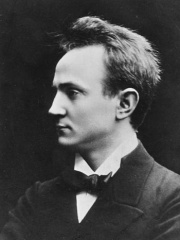
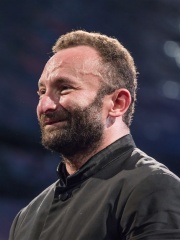
The Most Famous
CONDUCTORS from Russia
This page contains a list of the greatest Russian Conductors. The pantheon dataset contains 128 Conductors, 13 of which were born in Russia. This makes Russia the birth place of the 3rd most number of Conductors behind United Kingdom, and Germany.
Top 10
The following people are considered by Pantheon to be the top 10 most legendary Russian Conductors of all time. This list of famous Russian Conductors is sorted by HPI (Historical Popularity Index), a metric that aggregates information on a biography's online popularity. Visit the rankings page to view the entire list of Russian Conductors.

1. Serge Koussevitzky (1874 - 1951)
With an HPI of 65.63, Serge Koussevitzky is the most famous Russian Conductor. His biography has been translated into 27 different languages on wikipedia.
Serge Koussevitzky (born Sergey Aleksandrovich Kusevitsky; Russian: Сергей Александрович Кусевицкий, IPA: [sʲɪrˈɡʲej ɐlʲɪkˈsandrəvʲɪtɕ kʊsʲɪˈvʲitskʲɪj]; 26 July [O.S. 14 July] 1874 – 4 June 1951) was a Russian and American conductor, composer, and double-bassist, known for his long tenure as music director of the Boston Symphony Orchestra from 1924 to 1949.

2. Yuri Temirkanov (1938 - 2023)
With an HPI of 61.05, Yuri Temirkanov is the 2nd most famous Russian Conductor. His biography has been translated into 24 different languages.
Yuri Khatuevich Temirkanov (Russian: Ю́рий Хату́евич Темирка́нов; Kabardian: Темыркъан Хьэту и къуэ Юрий; 10 December 1938 – 2 November 2023) was a Soviet and Russian conductor, named a People's Artist of the USSR.

3. Yevgeny Svetlanov (1928 - 2002)
With an HPI of 60.96, Yevgeny Svetlanov is the 3rd most famous Russian Conductor. His biography has been translated into 23 different languages.
Yevgeny Fyodorovich Svetlanov (Russian: Евгений Фёдорович Светланов; 6 September 1928 – 3 May 2002) was a Soviet and Russian conductor, composer, and pianist.

4. Semyon Bychkov (b. 1952)
With an HPI of 60.00, Semyon Bychkov is the 4th most famous Russian Conductor. His biography has been translated into 17 different languages.
Semyon Mayevich Bychkov (Russian: Семён Маевич Бычков, IPA: [sʲɪˈmʲɵn ˈma(j)ɪvʲɪdʑ bɨtɕˈkof]; born November 30, 1952) is a Soviet-born American conductor. He is the chief conductor and artistic director of the Czech Philharmonic.

5. Leo Borchard (1899 - 1945)
With an HPI of 59.80, Leo Borchard is the 5th most famous Russian Conductor. His biography has been translated into 16 different languages.
Lew Ljewitsch "Leo" Borchard (31 March 1899 – 23 August 1945) was a German-Russian conductor and briefly musical director of the Berlin Philharmonic.

6. Armas Järnefelt (1869 - 1958)
With an HPI of 57.73, Armas Järnefelt is the 6th most famous Russian Conductor. His biography has been translated into 16 different languages.
Edvard Armas Järnefelt (14 August 1869 – 23 June 1958) was a Finnish and Swedish conductor and composer, who achieved some minor success with his orchestral works Berceuse (1904) and Praeludium (1900). He spent much of his conducting career at the Royal Swedish Opera in Stockholm, Sweden.

7. Vasily Agapkin (1884 - 1964)
With an HPI of 57.67, Vasily Agapkin is the 7th most famous Russian Conductor. His biography has been translated into 19 different languages.
Vasily Ivanovich Agapkin (Russian: Васи́лий Ива́нович Ага́пкин; 3 February 1884 – 29 October 1964) was a Russian and Soviet military orchestra conductor, composer, and author of the well-known march "Farewell of Slavianka" (composed in 1912). Agapkin was born in Ryazan Governorate in 1884. From 1912 to 1915, he studied at the Tambov musical school, where he composed the popular Russian patriotic march "Farewell of Slavianka"; he later served in the army. After the October Revolution, Vasily Agapkin voluntarily joined the Red Army in 1918 and organized a brass band in the 1st Red Hussar Regiment. In 1920, Agapkin returned to Tambov, directing the music studio and the orchestra of the GPU troops. On August 5, 1922, Agapkin and his orchestra gave a farewell concert in Tambov, after which they moved to Moscow. In January 1924, the Agapkin Orchestra took part in the ceremony during the state funeral of Vladimir Lenin. In 1928, Agapkin organized a brass band of street children, which for many of them was the beginning of a professional career as a musician. In the 1930s, he headed the orchestra of the Higher School of the NKVD of the USSR, with which he made a number of recordings. He was notably the bandmaster for the Band of the Dzerzhinsky Division of the NKVD. Agapkin led the combined Russian military bands during the famous Red Square October Revolution Parade in Moscow on 7 November 1941. "Farewell of Slavianka" was one of the four marches that were played in that Parade, and in honor of his role there it has been played as the final march in Victory Day Parades all over Russia. His music has appeared in many films including The Cranes Are Flying (1957) and 72 Meters (2004).

8. Georg Schnéevoigt (1872 - 1947)
With an HPI of 56.88, Georg Schnéevoigt is the 8th most famous Russian Conductor. His biography has been translated into 16 different languages.
Georg Lennart Schnéevoigt (8 November 1872 – 28 November 1947) was a Finnish conductor and cellist. He was born in Vyborg, Grand Duchy of Finland, which is now in Russia, to Ernst Schnéevoigt and Rosa Willandt.

9. Kirill Petrenko (b. 1972)
With an HPI of 56.48, Kirill Petrenko is the 9th most famous Russian Conductor. His biography has been translated into 21 different languages.
Kirill Garrievich Petrenko (Russian: Кирилл Гарриевич Петренко, Latin script: Kirill Garrievič Petrenko; born 11 February 1972) is a Russian-Austrian conductor. He is chief conductor of the Berlin Philharmonic.
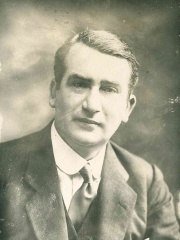
10. Albert Coates (1882 - 1953)
With an HPI of 56.44, Albert Coates is the 10th most famous Russian Conductor. His biography has been translated into 17 different languages.
Albert Coates (* 11 jul./23 April 1881greg. [deviant: 1882] – 11 December 1953) was an English conductor and composer. Born in Saint Petersburg, where his English father was a successful businessman, he studied in Russia, England and Germany, before beginning his career as a conductor in a series of German opera houses. He was a success in England conducting Wagner at the Royal Opera House, Covent Garden in 1914, and in 1919 was appointed chief conductor of the London Symphony Orchestra. His strengths as a conductor lay in opera and the Russian repertory, but he was not thought as impressive in the core Austro-German symphonic repertory. After 1923 he failed to secure a permanent conductorship in the UK, and for much of the rest of his life guest-conducted in continental Europe and the US. In his last years he conducted in South Africa, where he died at 71. As a composer, Coates is little remembered, but he composed seven operas, one of which, Pickwick, was performed at Covent Garden and was the first opera to be televised on the newly launched BBC, in November 1936. He also wrote some concert works for orchestral forces.
People
Pantheon has 13 people classified as Russian conductors born between 1869 and 1977. Of these 13, 4 (30.77%) of them are still alive today. The most famous living Russian conductors include Semyon Bychkov, Kirill Petrenko, and Tugan Sokhiev. The most famous deceased Russian conductors include Serge Koussevitzky, Yuri Temirkanov, and Yevgeny Svetlanov. As of April 2024, 1 new Russian conductors have been added to Pantheon including Vasily Petrenko.
Living Russian Conductors
Go to all RankingsSemyon Bychkov
1952 - Present
HPI: 60.00
Kirill Petrenko
1972 - Present
HPI: 56.48
Tugan Sokhiev
1977 - Present
HPI: 51.00
Vasily Petrenko
1976 - Present
HPI: 44.02
Deceased Russian Conductors
Go to all RankingsSerge Koussevitzky
1874 - 1951
HPI: 65.63
Yuri Temirkanov
1938 - 2023
HPI: 61.05
Yevgeny Svetlanov
1928 - 2002
HPI: 60.96
Leo Borchard
1899 - 1945
HPI: 59.80
Armas Järnefelt
1869 - 1958
HPI: 57.73
Vasily Agapkin
1884 - 1964
HPI: 57.67
Georg Schnéevoigt
1872 - 1947
HPI: 56.88
Albert Coates
1882 - 1953
HPI: 56.44
Nikolai Golovanov
1891 - 1953
HPI: 55.17
Newly Added Russian Conductors (2025)
Go to all RankingsOverlapping Lives
Which Conductors were alive at the same time? This visualization shows the lifespans of the 9 most globally memorable Conductors since 1700.

